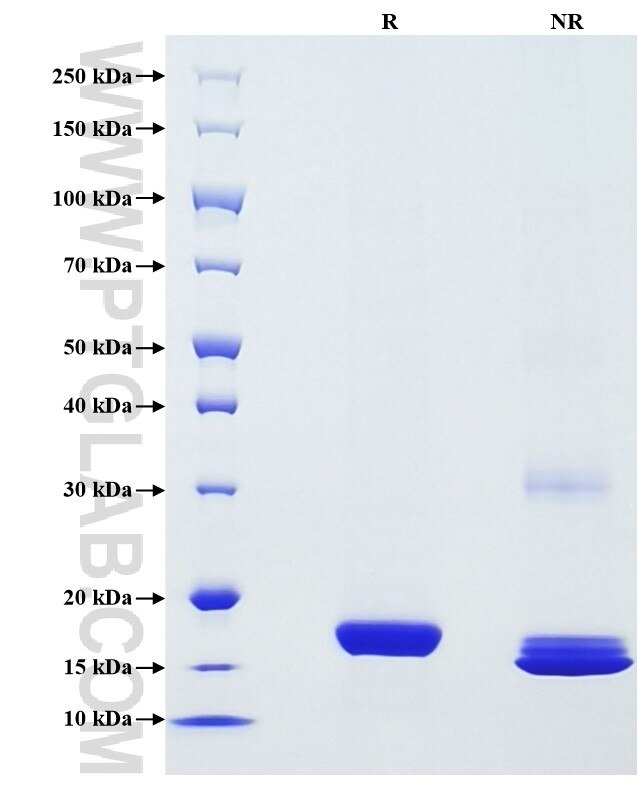Recombinant Human IFNA1 protein (His Tag)
Species
Human
Purity
>90 %, SDS-PAGE
Tag
His Tag
Activity
not tested
Cat no : Eg1177
Validation Data Gallery
Product Information
| Purity | >90 %, SDS-PAGE |
| Endotoxin | <0.1 EU/μg protein, LAL method |
| Activity |
Not tested |
| Expression | HEK293-derived Human IFNA1 protein Cys24-Glu189 (Accession# P01562) with a His tag at the C-terminus. |
| GeneID | 3447|3439 |
| Accession | P01562 |
| PredictedSize | 20.5 kDa |
| SDS-PAGE | 16-18 kDa, reducing (R) conditions |
| Formulation | Lyophilized from 0.22 μm filtered solution in PBS, pH 7.4. Normally 5% trehalose and 5% mannitol are added as protectants before lyophilization. |
| Reconstitution | Briefly centrifuge the tube before opening. Reconstitute at 0.1-0.5 mg/mL in sterile water. |
| Storage Conditions |
It is recommended that the protein be aliquoted for optimal storage. Avoid repeated freeze-thaw cycles.
|
| Shipping | The product is shipped at ambient temperature. Upon receipt, store it immediately at the recommended temperature. |
Background
IFNA1 is a member of the Type I IFN (1) family best known for their antiviral activity. It is a key cytokine regulating the activity of B cells, T-helper cells (Th cells), cDCs and natural killer cells (NK cells). Interferon-alpha induces B cell maturation into plasma cells and immunoglobulin production. Interferon-alpha plays an important role in the pathogenesis of systemic lupus erythematosus (SLE). Interferon-alpha was the first cytokine to show clinical benefit in the treatment of certain types of cancer, including melanoma, chronic myelogenous leukemia, and renal cancer.
References:
1. Lande R. et al. (2010). Ann N Y Acad Sci. 1183: 89-103. 2. Poeck H. et al. (2004). Blood. 103: 3058-64. 3. Lindau D. et al. (2013). Ann Rheum Dis. Sep 7 4. Belardelli F. et al. (2002). Cytokine Growth Factor Rev. 13: 119-34. 5. Brassard DL. et al. (2002). J Leukoc Biol. 71: 565-81.

